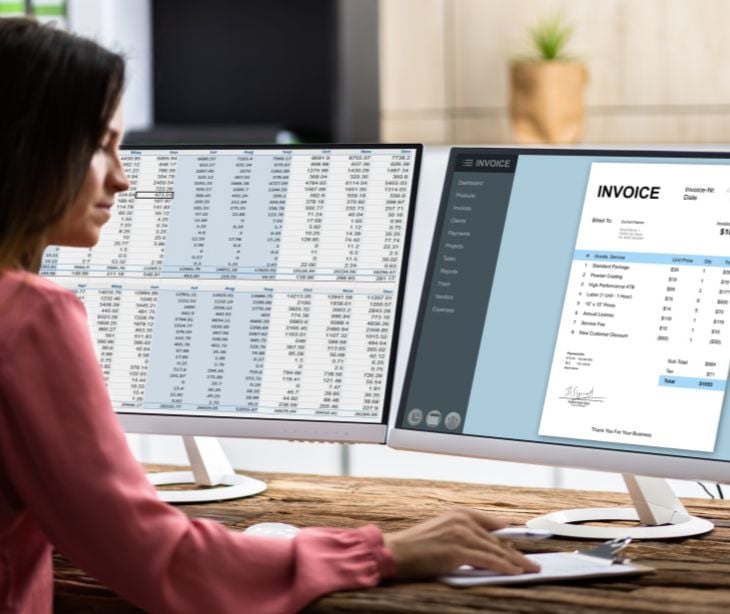
Healthcare compliance software is a detailed management tool that empowers chief compliance officers to oversee and streamline compliance efforts across an organization's facilities. By proactively managing risk, automating workflows, enhancing collaboration, and providing reporting capabilities, these solutions have become indispensable for healthcare organizations seeking to maintain a strong compliance posture.
Benefits of utilizing healthcare compliance software
- Increased visibility: These platforms offer real-time visibility into compliance activities, including incident management, allowing compliance officers to monitor progress, track metrics, and identify areas that require attention. This enhanced transparency enables more effective oversight and decision-making.
- Streamlined workflows: Healthcare compliance software automates numerous administrative tasks related to compliance management, such as tracking activities, scheduling self-audits, and managing documentation. This saves time and reduces manual effort for compliance teams, enabling them to focus on strategic initiatives.
- Enhanced reporting: Customizable reporting and analytics empower compliance officers to generate detailed reports on compliance activities, performance metrics, and audit findings. These reports facilitate effective communication with senior management, regulators, and other stakeholders, demonstrating a commitment to compliance excellence.
- Centralized documentation: Healthcare compliance software ensures that all relevant documentation is organized, up-to-date, and readily accessible by providing a centralized repository for storing and managing compliance-related documents, such as policies, procedures, training materials, and audit reports.
- Improved collaboration: These platforms facilitate seamless collaboration and communication among compliance team members, stakeholders, and other departments, enhancing the alignment and coordination of compliance initiatives. This, in turn, fosters a strong compliance culture across the organization.
- Reduced risk: Healthcare compliance software helps compliance officers minimize the risk of potential compliance failures and mitigate the impact of incidents by automating compliance processes, providing real-time visibility, and enabling proactive risk management.
Read also: Benefits of a compliance program in healthcare
Navigating healthcare compliance software
When selecting the right healthcare compliance software for your organization, there are several considerations to keep in mind. These can be broadly categorized into three main areas:
Functionality
The ideal healthcare compliance software solution should be a flexible, all-in-one system that aligns with recognized frameworks. It should offer complete coverage of regulatory areas, including HIPAA, OSHA, and SOC 2, while also allowing for the customization of compliance standards to meet your organization's unique needs.
- All-in-one compliance: Ensure the software covers a wide range of healthcare regulatory areas and provides the ability to customize compliance standards to your organization's specific requirements.
- Risk management: Advanced risk management capabilities, including self-audit and external audit management, risk scoring, gap identification, and remediation planning, are essential for proactive compliance management.
- Incident management: Incident management tools, such as anonymous employee reporting, breach incident reporting, and breach management functionalities, are beneficial for effectively addressing compliance incidents.
- Policies and procedures: The software should offer templated and customizable policies and procedures, as well as centralized storage and management of these compliance documents.
- Employee training: Effective employee training and certification tracking are necessary for ensuring compliance awareness and adherence across the organization.
- Vendor management: Capabilities for identifying and tracking business associates, managing customizable business associate agreements, and storing and monitoring these agreements for vendor compliance.
- Reporting: Customizable reporting templates, centralized documentation storage, and strong audit logging and reporting functionalities enable compliance officers to demonstrate compliance to stakeholders and regulators.
Software specifications
Beyond the necessary functionality, organizations must consider the broader software specifications that can impact the overall user experience and the long-term viability of the solution.
- Ease of use: Assess the software's user-friendly interface, intuitive workflows, and overall user experience, including the effectiveness of training modules for employees.
- Customization: Evaluate the level of customization available for workspaces, documents, and reports to ensure the solution aligns with your organization's unique needs.
- Scalability and flexibility: Ensure the software can accommodate your current scale and easily adapt to your organization's future growth and changing compliance requirements.
- Integration capabilities: Assess the software's ability to integrate with your existing IT infrastructure and third-party applications, particularly cloud-based solutions that offer streamlined implementation and ongoing maintenance.
- Future-proofing: Understand the vendor's approach to addressing regulatory changes and updates to ensure the software remains compliant and up-to-date.
Business considerations
While functionality and specifications are fundamental, it is equally imperative to thoroughly examine the commercial and business aspects of the software vendor and the proposed solution.
- Vendor reputation: Assess the vendor's industry reputation, endorsements from medical associations, and case studies or testimonials from similar healthcare organizations that have successfully implemented the solution.
- Vendor training and support: Evaluate the level of support offered during the initial implementation phase, the quality of training provided to your compliance team, and the ongoing support available after the initial setup.
- Costs: Carefully review the pricing structure, including initial setup costs, licensing fees, and any additional charges for support or updates. Consider the long-term cost implications, particularly if the solution is priced on a per-seat subscription basis.
- Free trial or money-back guarantee: Determine if the vendor offers a free trial period or a money-back guarantee, as this can provide valuable insights into the software's suitability for your organization.
- Software license period: Understand the commitment period associated with the software license, as this can impact your organization's flexibility and the vendor's incentive to maintain your satisfaction.
Paubox for HIPAA compliant email
HIPAA compliant email software is specifically designed for healthcare professionals, medical staff, and any entity that handles protected health information (PHI). This includes doctors, hospitals, insurance companies, and other healthcare-related organizations that require secure communication channels to protect patient privacy and meet legal standards.
Paubox stands out as a leader in HIPAA-compliant communication. As of 2023, Paubox was ranked #1 by G2 in categories such as ease of use, customer support, email encryption, and overall best results.
Unlike other secure email services, Paubox is dedicated to the healthcare industry, consistently monitoring compliance protocols and changes in healthcare cybersecurity.
Highly rated software like Paubox ensures superior security and compliance through advanced features, regular updates, and adherence to industry best practices.
Learn more: HIPAA Compliant Email: The Definitive Guide
In the news
The global healthcare compliance software market is projected to grow from USD 3.7 billion in 2024 to USD 10.3 billion by 2033, with a CAGR of 12.0%, driven by the need for streamlined compliance and risk management in healthcare. Cloud-based solutions will dominate the market due to their widespread adoption, enhanced data safety, and quick deployment, while on-premises solutions will cater to organizations with stringent security requirements. Certain segments like policy and procedure management, medical billing, and coding are expected to grow largely.
North America will lead the market in 2024 with a 50.4% revenue share, focusing on data security and regulatory compliance, while the Asia-Pacific region will experience growth due to expanding healthcare markets and increasing regulatory demands. Trends driving the market include the adoption of blockchain for secure data management, remote auditing solutions, interoperability for ideal data exchange, and AI-driven compliance monitoring for proactive risk management.
FAQs
What is healthcare compliance software?
Healthcare compliance software is a specialized tool designed to help healthcare organizations adhere to regulatory standards, such as HIPAA, GDPR, and other industry-specific regulations. It assists in managing, monitoring, and ensuring compliance with legal and ethical guidelines, safeguarding patient data, and preventing fraud. Features often include audit trails, risk management, policy management, and training modules.
Why is healthcare compliance software important?
Healthcare compliance software is necessary because it helps organizations avoid legal penalties and fines associated with non-compliance. It ensures that patient data is protected, thereby maintaining patient trust and confidentiality. Moreover, it streamlines the compliance process, making it easier to manage and monitor adherence to regulations, ultimately improving the overall quality of care.
Can healthcare compliance software be customized to fit specific organizational needs?
Yes, many healthcare compliance software solutions offer customization options to meet the unique needs of different organizations. This can include tailoring workflows, compliance checklists, reporting formats, and integrating with other systems used by the organization. Customization ensures that the software aligns with the specific regulatory requirements, operational processes, and scale of the organization, enhancing its effectiveness and ease of use.
How does healthcare compliance software help with HIPAA compliance?
Healthcare compliance software helps with HIPAA compliance by providing tools to ensure that patient data is handled securely and in accordance with HIPAA regulations. This includes features like encrypted data storage, access controls, audit logs, and regular compliance checks. The software also offers training modules to educate staff about HIPAA requirements and best practices, reducing the risk of breaches and ensuring ongoing compliance.
Subscribe to Paubox Weekly
Every Friday we'll bring you the most important news from Paubox. Our aim is to make you smarter, faster.



